- News
- Reviews
- Bikes
- Accessories
- Accessories - misc
- Computer mounts
- Bags
- Bar ends
- Bike bags & cases
- Bottle cages
- Bottles
- Cameras
- Car racks
- Child seats
- Computers
- Glasses
- GPS units
- Helmets
- Lights - front
- Lights - rear
- Lights - sets
- Locks
- Mirrors
- Mudguards
- Racks
- Pumps & CO2 inflators
- Puncture kits
- Reflectives
- Smart watches
- Stands and racks
- Trailers
- Clothing
- Components
- Bar tape & grips
- Bottom brackets
- Brake & gear cables
- Brake & STI levers
- Brake pads & spares
- Brakes
- Cassettes & freewheels
- Chains
- Chainsets & chainrings
- Derailleurs - front
- Derailleurs - rear
- Forks
- Gear levers & shifters
- Groupsets
- Handlebars & extensions
- Headsets
- Hubs
- Inner tubes
- Pedals
- Quick releases & skewers
- Saddles
- Seatposts
- Stems
- Wheels
- Tyres
- Health, fitness and nutrition
- Tools and workshop
- Miscellaneous
- Cross country mountain bikes
- Tubeless valves
- Buyers Guides
- Features
- Forum
- Recommends
- Podcast
review
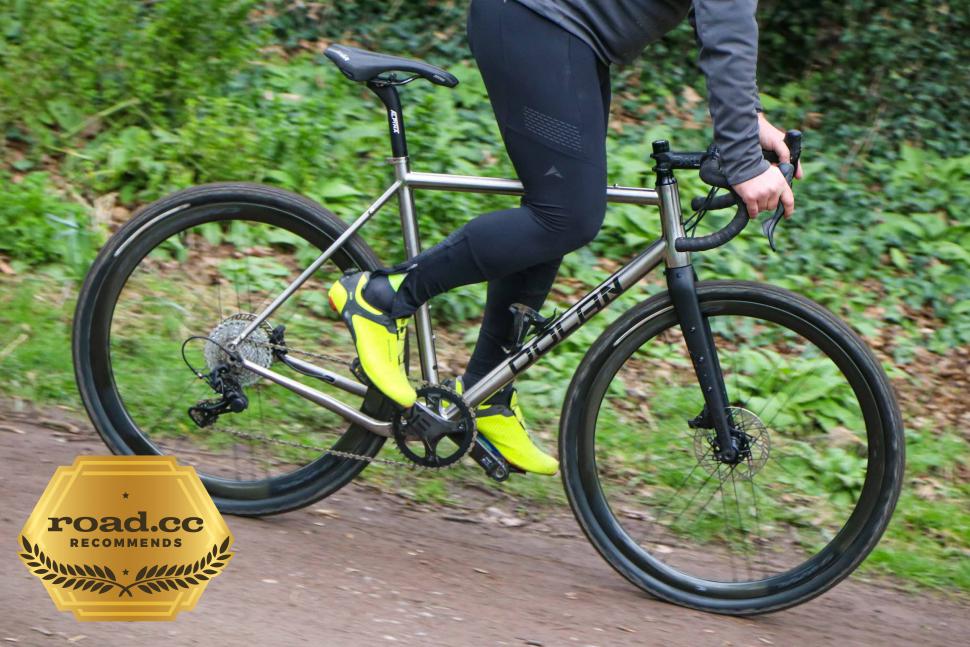 2022 Dolan GXT Titanium Gravel Disc Campag Ekar 1x13 - riding 1.jpg
2022 Dolan GXT Titanium Gravel Disc Campag Ekar 1x13 - riding 1.jpg£4,989.90
VERDICT:
Well-made and great looking gravel bike with oodles of versatility for riding on the road and off
Impressive build quality
Loads of stiffness
Plenty of mounts
Press-fit BB won't be to everybody's liking
Weight:
9,300g
Contact:

This product has been selected to feature in road.cc recommends. That means it's not just scored well, but we think it stands out as special. Go to road.cc recommends
At road.cc every product is thoroughly tested for as long as it takes to get a proper insight into how well it works. Our reviewers are experienced cyclists that we trust to be objective. While we strive to ensure that opinions expressed are backed up by facts, reviews are by their nature an informed opinion, not a definitive verdict. We don't intentionally try to break anything (except locks) but we do try to look for weak points in any design. The overall score is not just an average of the other scores: it reflects both a product's function and value – with value determined by how a product compares with items of similar spec, quality, and price.
What the road.cc scores meanGood scores are more common than bad, because fortunately good products are more common than bad.
- Exceptional
- Excellent
- Very Good
- Good
- Quite good
- Average
- Not so good
- Poor
- Bad
- Appalling
The Dolan GXT is a hugely capable gravel bike whose titanium frame offers a great balance of stiffness and comfort, while the geometry allows you to feel in total control whatever the terrain. It's beautifully made too, comes with all of the mounts you could need, and though not cheap it's good value compared with rivals.
On its deep section wheels and large all black tyres the GXT looks a purposeful beast, and that's how it behaves out in the wild.
> Buy now: Dolan GXT Titanium Gravel Disc Campag Ekar 1x13 from Dolan for £3724.99
The raw finish of the titanium shrugs off scratches and scuffs, taking away any concerns of rocks pinging off the down tube or thrashing it through the low branches of wooded trails, so you can just get on with enjoying the journey.
Ride
Titanium is an excellent material for a gravel/adventure bike as, along with the robustness mentioned above, the tubing has a natural flex to it which can be exploited to bring an element of smoothness to the ride.
Even though the GXT is one of the stiffer titanium frames I have ridden, that underlying tone of vibration cancelling is still there, noticeable when riding on hardpacked gravel sections or the road.
Extra stiffness is a good thing on a gravel bike and not only from a performance point of view. With mounts aplenty, the Dolan can be used for some serious load carrying and the tautness of the frame will stop any flex when hauling all of that baggage up a steep climb.
'But what about the comfort?' I hear you scream. Well, with the bike's ability to take tyres north of 40mm wide – our test bike has 43mm Panaracers fitted – you can let the natural suspension of all that air take the hits.
Over the years, gravel bikes have tended to move away from the kind of cyclo-cross/endurance road bike mix they started out as. They now tend to be designed with slacker geometry for adventures, sometimes taking cues from the mountain biking world, for everything from long distance machines through to high-end gravel race bikes.
The GXT sits somewhere in the middle, and that's a great thing, especially if you vary your riding habits a lot.
The front end is slightly slacker than an endurance road bike, but not so much that you'd notice on the road. It gives a positive feel to the handling and the bike never feels out of control, even on fast descents or wet tarmac.
Head off-road and the handling feels quicker as the surfaces become more slippery or start to move around beneath you. It's on the fun side of neutral – not twitchy enough to feel a handful, but fast enough to allow you to tackle technical sections or high-speed downhills still feeling as though you are in control.
The length of the wheelbase brings added stability, working with the handling rather than against it, and I found that gave me the confidence to maintain a loose grip on the bar and let the GXT flow and slide about, knowing that I could catch it and bring the bike back under control without too much of a fight.
This was something that I had to do on some wetter rides as the Panaracer Gravelking tyres don't have a huge amount of tread for coping with wet mud and chalk.
Both the titanium frame and carbon fibre fork are great at transmitting feedback too. I always felt I knew exactly what the tyres were up to, and should one of them slip then a quick flick of the bar or tweak of body position would get things realigned without having to scrub off too much speed.
If you are out for a longer ride and want to take things steady, or if you are loaded up, the GXT is just as happy ticking over without feeling like a restrained race bike.
With smooth inputs, the handling remains easy to control even when negotiating very tight slow corners or when, say, dropping down heavily tree-rooted technical sections that I find on certain parts of my main gravel loop.
The geometry gives great versatility, allowing you to take on a bit of bikepacking one week, and then going for a stripped-down gravel blast the week after.
For faster sections where you might want to get into the drops, the relatively steep seat angle positions you nicely for getting the power out through the legs, and while the head tube length lets you get aero, it's not so short that you can't still be comfortable.
The GXT really is a do-it-all kind of a bike regardless of the terrain, thanks to the ride quality and geometry. Its weight is well within range to help deliver a sporty ride too.
Frame and fork
The GXT's frameset is manufactured from 3Al/2.5V tubing which means that the titanium is alloyed with aluminium (3%) and vanadium (2.5%), the grade most commonly used in cycle frame manufacturing.
Titanium alloy has excellent corrosion resistance, which means it can be left with a raw finish. The downside of that can be that there is no paint to hide any agricultural welding.
That's not an issue here as the GXT is wearing some very neat and tidy welds throughout. Dolan also offers a five-year warranty, and recommends a rider weight limit of 120kg.
The whole frame is finished to a very high standard, complemented by the clean look that the internal cabling gives. It's compatible with electronic or mechanical groupsets and there is also provision to run a front mech should you want to choose a model with a double chainset.
The GXT is keeping up with the times on tyre clearance too. You can run up to 50mm on a 650B wheel and a bit less on a 700C; the fitted 43mm tyres still leave a decent amount of room to allow for mud build up or stuff getting caught – I reckon you could get away with 45mm.
As you can tell by the bulbous lower half of the head tube, Dolan has gone for a tapered headset to increase stiffness for high steering and braking loads.
It's also gone reasonably chunky at the bottom bracket area too, great for when you're putting in hard efforts out of the saddle, but the choice of a press-fit BB won't be to everyone's liking on a bike that is likely to see a lot of rubbish weather, thanks to reports of creaking.
I had the GXT for a good couple of months and rode it through deep puddles, loads of mud, grit and gravel with no ill effects or noises coming from the frame or Ekar BB.
Dolan offers a good level of customisation on its builds, and our test model came with a fork upgrade – to the full-carbon fibre GXT Gravel Adventure Fork, which has three-bolt mounting points on each leg.
Add those to the three sets of bottle mounts (one under the down tube), bolts for a bento box on the top tube, mudguard and rack mounts, and you get an idea of just how much kit this bike can carry.
The mudguard points are found in the traditional positions too, so there shouldn't be any faffing with bending stays and things to get them to fit straight off the shelf.
Everything else is as you'd expect on a modern gravel bike – 12mm thru-axles front and rear, and flat mounts for the brake callipers.
Geometry
There are five sizes in the range, from a 49cm through to a 58cm; that equates to effective top tube lengths of 520mm to 580mm.
As mentioned, we have the 56cm which has a 565mm top tube, 170mm head tube, and a seat tube of 560mm, centre to top. This gives stack and reach figures of 586.9mm and 385.6mm respectively, exactly as I'd expect on a bike of this type and size.
The head angle is 72 degrees, the seat angle 73.
Groupset
The GXT is available as a frameset only (£1,899.99) or in a range of 10 different builds starting with Shimano 105 at £2,524.99 through to the 12-speed Ultegra Di2, the most expensive at £4,549.99.
Shimano groupsets are used throughout the range, with GRX and GRX Di2 offered in both 1x and 2x setups. Or you can choose this rather excellent Camapgnolo Ekar build for £3,724.99.
Matt reviewed Ekar not long after it came out and loved it. I've been using it across a couple of bikes lately and have come to the same conclusion.
If Ekar has passed you by, it's a 1x groupset which boasts a 13-sprocket wide-ranging cassette; in this case it's a 44-tooth chainring and a 9-36 cassette.
The sprockets run 9-10-11-12-13-14-16-18-20-23-27-31-36 – so the smaller jumps are found at the smaller end of the cassette, which works well for not upsetting your cadence on faster sections or descents. The mid-range has two-teeth jumps, which are barely noticeable, while the bigger jumps happen at the top of the cassette, giving you plenty of climbing gears where the gaps don't matter.
If I was going to be riding the Dolan loaded up a lot of the time, or in very hilly terrain, I'd probably switch to one of the other cassettes available, the 9-42 or 10-44, as the 9-36 is biased towards faster riding.
I currently ride a 48/32 chainset and an 11-32 cassette on my own gravel bike, which, with the same size tyres as the Dolan, gives me a lowest gear ratio of 29.6 gear inches and a largest of 121.9. That's lower than the Ekar in this setup can offer for the bottom gears at just 34.1 gear inches; it does have a massive top end though, at 136.7.
Another option would be to change the chainring size – they're available down to a 38T – although Dolan doesn't show ratio changes, chainset or cassette, as an option on its customisation page.
Overall, though, I didn't find the gearing to be too tall out on the trails. Most of my riding takes place on Salisbury Plain as it's only a couple of miles from my front door – the only problem being that it's uphill all the way to get there, the last mile being pretty steep.
On the Dolan, though, I didn't find the climbing to be gruelling and could still complete the majority of it in the saddle.
When it comes to the performance, Ekar is great. It uses Campagnolo's tried and tested system for the gear shifts with a thumb paddle on the inside of the hood for dropping down the cassette, while swinging the tab behind the brake lever gives you an easier gear.
The shifting feels crisp, with a slightly heavier feel to it than Shimano's offerings; I wouldn't say better, just a touch more defined at times. That's helpful on really rough sections when you can still feel the chain drop or climb onto the next sprocket through the lever.
Compared with Campag's road levers, the thumbshifter is curved rather than flat, which enables you to change gear from the drops while bouncing around on the gravel.
The shape of the hoods is also great, and the height – on account of the hydraulic reservoir – means that even when bouncing over rough terrain there is no chance of slipping off the levers.
When it comes to stopping, the Ekar brakes are very positive, with loads of power and great levels of modulation, although I'd agree with Matt that I do prefer the flat section found on the front of Shimano's GRX levers. That flat front gives superior grip on the levers when trying to brake on rough descents. It's a minor quibble, though.
Dolan has specced a 160mm rotor on the front and a 140mm rear.
Finishing kit
When it comes to the rest of the finishing kit, our model has had a bit of an upgrade over the standard one, with a step up from a Deda Zero handlebar/stem combination to a Deda Gravel100 combo.
I tested the handlebar back in 2019 and was impressed, especially as it seems to do a good job of taming road buzz while being stiff enough for out of the saddle efforts. The 12-degree flare helps control in the drops at speed, too, thanks to the wider stance.
The seatpost is an Alpina carbon fibre option held in place by a titanium seatclamp. You can get the post in either an inline configuration or setback, or if you want to keep the metal theme going you can upgrade to a titanium seatpost for an extra £99.98.
As standard this GXT comes with a Selle Italia X1 Flow saddle, but we have the Selle Italia Novus Endurance TM Superflow (+£74.98). This was probably the only real weak link in the build for me as I didn't really get on with the shape; I didn't so much find it uncomfortable, I just didn't really get on with the drooped nose.
Wheels and tyres
The standard wheelset is Mavic's Allroad Disc, or you can upgrade to the SL version.
Dolan has gone bling on our test model, though, with the top option – a set of Campagnolo's Shamal Carbon Disc 2-Way. That's carbon fibre rims, 40mm deep on the rear and 35mm on the front, laced up with 24 spokes each.
They use Campag's usual lacing of groups of three spokes, and while they might look somewhat fragile, they definitely aren't.
The 21mm internal rim width worked well with the wide tyres and they didn't miss a beat when being hammered over all kinds of rough terrain. Even hitting potholes or large rocks on the trails, they remained true throughout the test period.
The 43mm Panaracer GravelKing SK tyres are great on firm surfaces like hardpacked gravel, tarmac and dry mud, but they are more of a summer tyre in UK conditions.
They roll quickly on the road considering their size, and grip levels are good too.
Move off-road and the casing is supple enough to give a good ride quality while being robust enough to shrug off cuts and punctures, even on rocky sections.
With minimal tread they do suffer in soft conditions, easily getting overwhelmed and turning into muddy slicks, but when the going is firm they're great. I bought a set of 43mm SKs for my own gravel bike last spring and they are brilliant on dry trails, feeling fast and confidence inspiring.
Value
With the upgrades, this build costs £4,989, a large chunk of that coming from the Shamal wheels which bump the price up by £899.99.
Comparing less extravagant builds, the GXT offers decent value for money against the competition.
> Is a gravel bike the only bike you need?
As a frameset, including the standard full carbon fibre fork, its £1,899.99 is just £100 more than the Ribble CGR Ti, while a Kinesis Tripster ATR V3 frameset will set you back £2,200.
> 10 of the best titanium gravel and adventure bikes
Ribble also has a new Gravel range out and we're hoping to review one soon. The bikes are more gravel-specific than the CGR, and the Gravel Ti has a frameset price of £1,899.
An Ekar build with Mavic Allroad SL wheels is £4,349, whereas the GXT with that build is £4,264.98.
Conclusion
Overall, I think the Dolan GXT is a very complete bike. It straddles the gravel genre perfectly being able to cope with being an adventure machine and something on the faster end of the scale. The quality is great, it's well priced and the amount of customisation available in the builds lets you build the bike of your dreams.
Verdict
Well-made and great looking gravel bike with oodles of versatility for riding on the road and off
road.cc test report
Make and model: Dolan GXT Titanium Gravel Disc Campag Ekar 1x13
Size tested: 56 (56.5cm TT)
About the bike
List the components used to build up the bike.
Seatpost: Alpina 31.6mm Matt Setback Carbon Seatpost
Headset: Alpina 1 1/8
Seatclamp: Titanium H-CLP02 - 34.9mm
Chainset: Campagnolo EKAR 1X13 - (172.5mm - 44T)
Cassette: Campagnolo EKAR 13SPD -(9/36T)
Rear Mech: Campagnolo EKAR
Shifters/Brake Levers: Campagnolo EKAR Ergopower
Calipers: Campagnolo EKAR
Rotors: Campagnolo EKAR -160MM (FRONT) 140MM (REAR)
Chain: Campagnolo EKAR C13 Gravel
Bottom Bracket: Campagnolo EKAR PRO-TECH Pressfit
Handlebar/Stem: Deda Gravel 100
Bar Tape: Deda
Saddle: Selle Italia NOVUS Endurance TM Superflow
Wheelset: Campagnolo Shamal Carbon Disc 2-Way Tubeless
Tyres: Panaracer GravelKing SK TLC Folding 700c x 43mm
Tell us what the bike is for and who it's aimed at. What do the manufacturers say about it? How does that compare to your own feelings about the bike?
Dolan says, "Our latest addition to the Dolan Gravel range, our Dolan GXT. Gravel riding, the quickest developing discipline is taking the world by storm. Our Dolan GXT designed using the industry-leading Ti-3Al-2.5v Titanium tubing is a bicycle of manufacturing beauty. Hand welded Titanium tubing, around a geometry to ensure all-day comfort, whilst offering up to 50mm tyre clearances due to the inclusion of a dropped chainstay design, allows you to take on any terrain you wish. Fully integrated cable routing maintains a clean appearance, while the introduction of 12mm bolt-thru axles establishes a secure connection between wheel and frameset, guaranteed to maintain its style in the harshest of environments."
The GXT is one tough bike, and versatile too, while offering a quality ride feel and geometry that works well off-road.
Where does this model sit in the range? Tell us briefly about the cheaper options and the more expensive options
Dolan offers a range of standard builds which kick off with the Shimano 105 option at £2,524.99. Topping the range are the GRX Di2 and Ultegra Di2 versions which are £4,124.99 through to £4,549.99. This Ekar models sits below these at £3,724.99 before the upgrades that we have.
Frame and fork
Overall rating for frame and fork
8/10
Tell us about the build quality and finish of the frame and fork?
The frame is neatly welded and has a polished finish which gives it a premium look. The fork is well made and finished in a matt black natural carbon fibre finish.
Tell us about the materials used in the frame and fork?
The frame uses 3Al/2.5V titanium alloy tubing, while the fork is full carbon fibre.
Tell us about the geometry of the frame and fork?
The GXT has fairly typical geometry for a gravel/adventure bike with a slacker front end than an equivalent sized road bike and a longer wheelbase. Dolan has balanced things well as the GXT feels stable on the rough stuff but with a fun edge to the handling. It works well on the tarmac too, especially on rides that cover a lot of miles.
How was the bike in terms of height and reach? How did it compare to other bikes of the same stated size?
The stack and reach figures for this 56cm model are 586.9mm and 385.6mm respectively. Nothing out of the ordinary there.
Riding the bike
Was the bike comfortable to ride? Tell us how you felt about the ride quality.
Yes, the overall ride is comfortable, though it's not as plush as some titanium road bikes I have ridden. I'd say Dolan has gone for extra stiffness while relying on the large volume tyres to take the sting out of the terrain.
Did the bike feel stiff in the right places? Did any part of the bike feel too stiff or too flexible?
Stiffness is impressive throughout, especially around the bottom bracket area.
How did the bike transfer power? Did it feel efficient?
The stiffness at that bottom bracket area means power transfer isn't lacking. Out of the saddle efforts show no signs of flex.
Was there any toe-clip overlap with the front wheel? If so was it a problem?
No.
How would you describe the steering? Was it lively neutral or unresponsive? In its natural off-road environment the handling feels on the fun side of neutral.
Tell us some more about the handling. How did the bike feel overall? Did it do particular things well or badly?
I found the GXT very easy to live with even on really loose surfaces as it has a certain predictability to the way it behaves without being too sedate. There are great feedback levels throughout the frameset and this lets you have some fun should you want to take a few risks on the descents, for example.
Which components had the most effect (good or bad) on the bike's comfort? would you recommend any changes?
The big chamber 43mm tyres help bring extra comfort to the stiff frame, and the saddle works well too, in terms of padding.
Which components had the most effect (good or bad) on the bike's stiffness? would you recommend any changes?
The Deda Gravel 100 handlebar gives plenty of stiffness for hard efforts either on the hoods or drops. The Shamal wheels don't flex at all when you are really going for it either.
Which components had the most effect (good or bad) on the bike's efficiency? would you recommend any changes?
Campagnolo Ekar gives a large range of gears across its 13 sprockets, making it one of the most efficient 1x systems.
Rate the bike for efficiency of power transfer:
8/10
Rate the bike for acceleration:
8/10
Rate the bike for sprinting:
8/10
Rate the bike for high speed stability:
8/10
Rate the bike for cruising speed stability:
8/10
Rate the bike for low speed stability:
8/10
Rate the bike for flat cornering:
8/10
Rate the bike for cornering on descents:
8/10
Rate the bike for climbing:
8/10
The drivetrain
Rate the drivetrain for performance:
9/10
Rate the drivetrain for durability:
8/10
Rate the drivetrain for weight:
8/10
Rate the drivetrain for value:
6/10
Tell us some more about the drivetrain. Anything you particularly did or didn't like? Any components which didn't work well together?
I like the range of gears, from 9-tooth to 36, which gives you plenty of both high speed and low speed options. The braking is top notch as well.
Wheels and tyres
Rate the wheels for performance:
9/10
Rate the wheels for durability:
8/10
Rate the wheels for weight:
8/10
Rate the wheels for comfort:
8/10
Rate the wheels for value:
6/10
Tell us some more about the wheels.Did they work well in the conditions you encountered? Would you change the wheels? If so what for?
The Shamal wheels are a luxury upgrade and they perform very well, offering light weight and stiffness without making you wince every time you hit a rock or pothole.
Rate the tyres for performance:
8/10
Rate the tyres for durability:
8/10
Rate the tyres for weight:
7/10
Rate the tyres for comfort:
8/10
Rate the tyres for value:
6/10
Tell us some more about the tyres. Did they work well in the conditions you encountered? Would you change the tyres? If so what for?
The Panaracer tyres are better suited to drier conditions because of their lack of deep tread, so for the winter months you'll probably need something more aggressive. Their width does help, though, even in soft conditions. On the road they roll well, considering their size.
Controls
Rate the controls for performance:
8/10
Rate the controls for durability:
8/10
Rate the controls for weight:
7/10
Rate the controls for comfort:
8/10
Rate the controls for value:
6/10
Tell us some more about the controls. Any particularly good or bad components? How would the controls work for larger or smaller riders?
The Gravel 100 bar and stem are good quality, with the former having a decent flare, which helps for high speed sections on the rough stuff.
Your summary
Did you enjoy riding the bike? Yes
Would you consider buying the bike? Yes
Would you recommend the bike to a friend? Yes
How does the price compare to that of similar bikes in the market, including ones recently tested on road.cc?
The Dolan is well priced against competitors. Ribble's new Gravel Ti with an Ekar build and Mavic Allroad SL wheels is £4,349 with a comparable build on the Dolan at £4,264. Frameset prices are the same at £1,899 for both the Ribble and Dolan, while something like Kinesis' Tripster ATR V3 is £2,200.
Rate the bike overall for performance:
8/10
Rate the bike overall for value:
7/10
Use this box to explain your overall score
It's one very capable gravel bike on a whole range of surfaces. The quality of the frame is very good and it delivers an excellent ride feel.
About the tester
Age: 42
I usually ride: This month's test bike My best bike is: B'Twin Ultra CF draped in the latest bling test components
I've been riding for: Over 20 years I ride: Every day I would class myself as: Expert
I regularly do the following types of riding: time trialling, commuting, club rides, sportives, fixed/singlespeed,
Since writing his first bike review for road.cc back in early 2009 senior product reviewer Stu has tested more than a thousand pieces of kit, and hundreds of bikes.
With an HND in mechanical engineering and previous roles as a CNC programmer/machinist, draughtsman and development engineer (working in new product design) Stu understands what it takes to bring a product to market. A mix of that knowledge combined with his love of road and gravel cycling puts him in the ideal position to put the latest kit through its paces.
He first made the switch to road cycling in 1999, primarily for fitness, but it didn’t take long for his competitive side to take over which led to around ten years as a time triallist and some pretty decent results. These days though riding is more about escapism, keeping the weight off and just enjoying the fact that he gets to ride the latest technology as part of his day job.
Latest Comments
- Pub bike 5 min 36 sec ago
I thought the outer of all gear cables were laid longitudinally as opposed to spiral wound brake cables where precise movement isn't required.
- mctrials23 45 min 24 sec ago
This is exactly the sort of thing AI enables them to do. Previously it was thought impossible to do something like "if user is travelling for 3...
- chrisonabike 1 hour 4 min ago
It's not just cyclists... here's a BBC article with a wildlife trust reminding people to keep their dogs under control where asked to in the...
- archieboy 1 hour 8 min ago
No, just to expensive, I went Jonas and Demi as the expensive picks....
- Oldfatgit 6 hours 53 min ago
[Snip]...
- chrisonabike 8 hours 12 min ago
Well, Edinburgh certainly has hills, there's quite a bit of pavé and Arthur's seat is regularly motor-traffic-free anyway, so that would work. ...
- AJ101 8 hours 49 min ago
It was never the same after David Duffield left. With no more "Turn your granny to the wall" it felt too professional. And in the era of big...
- chrisonabike 10 hours 31 min ago
I think there could be a whole other thread there... per your post on the funnies of the US vs. Switzerland. (Or possibly a report to government...
- LookAhead 11 hours 23 min ago
Now where's the fun in being logical?...
- Sredlums 23 hours 51 min ago
I don't know how I can make it any more clear, so I will just repeat myself: "'I was not saying counterbalance isn't a thing"....
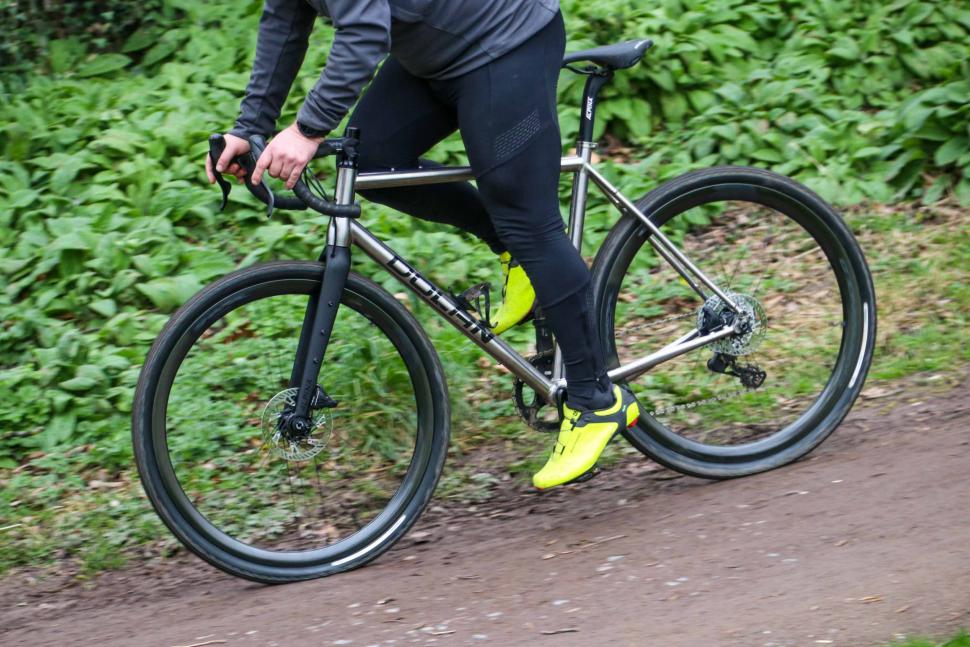

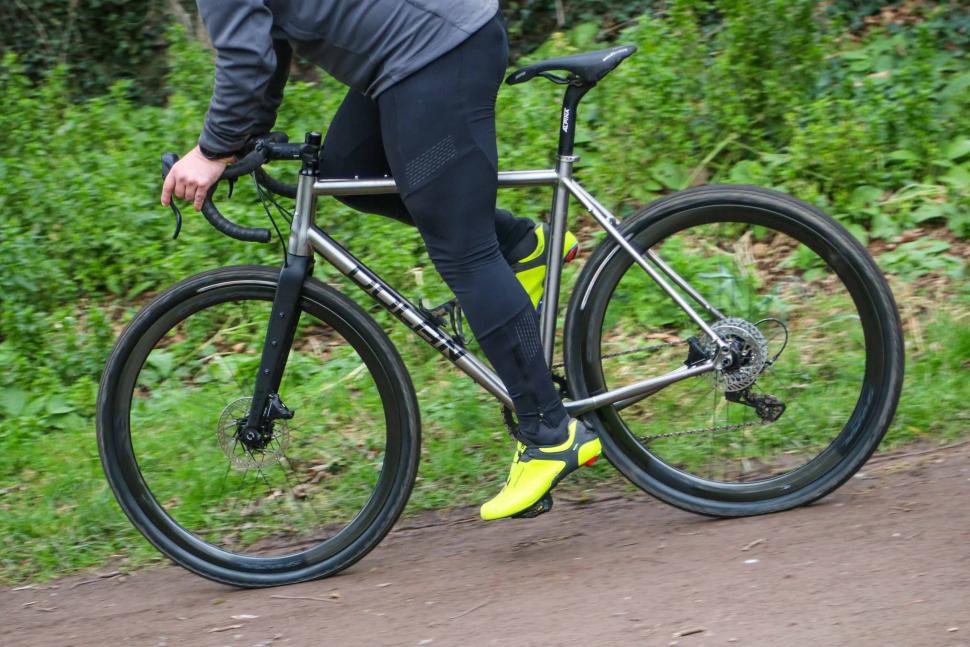











































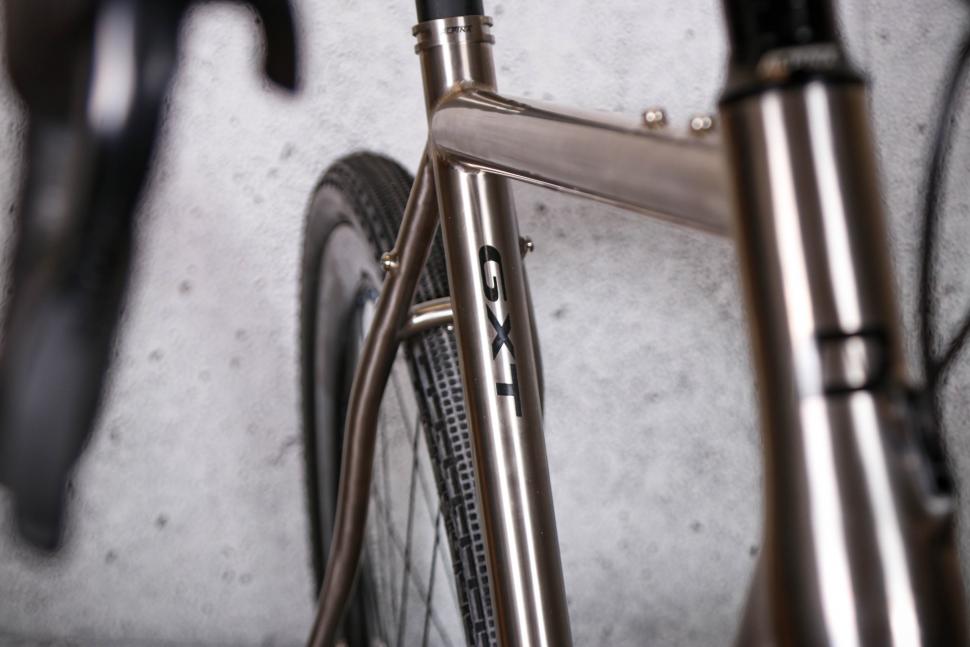



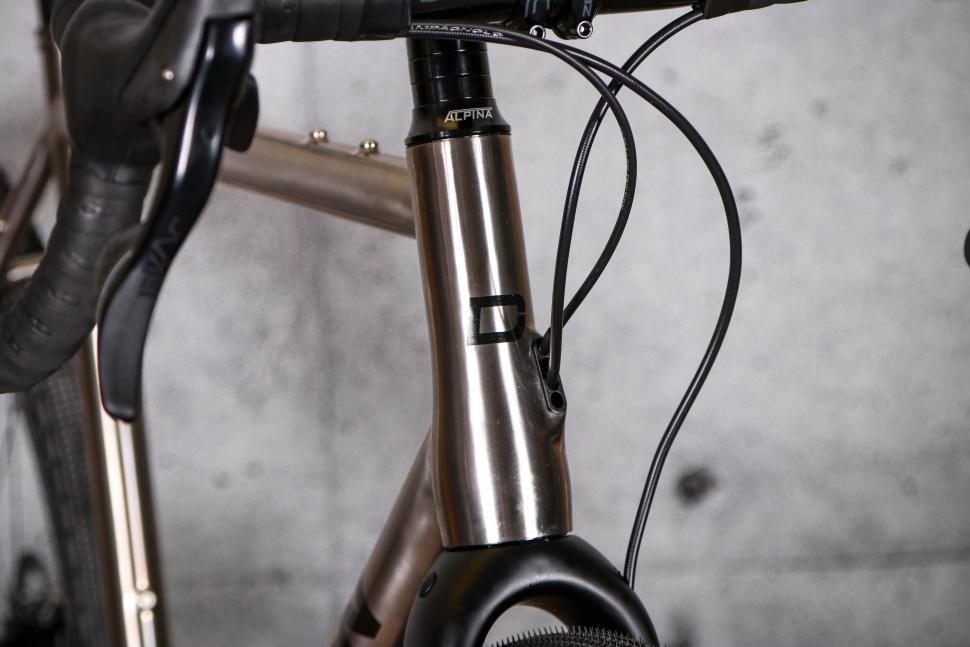

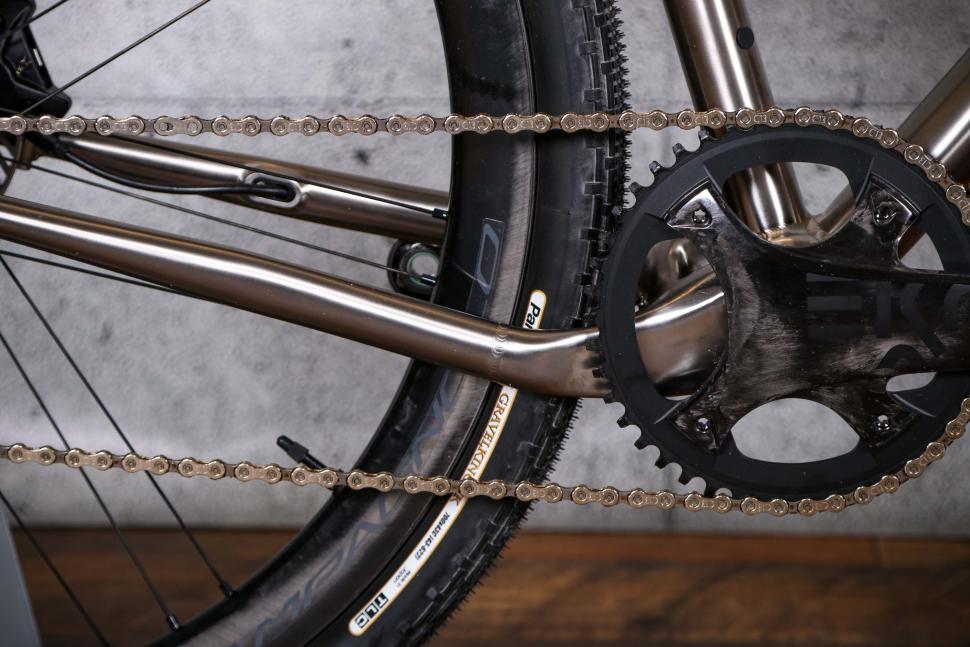

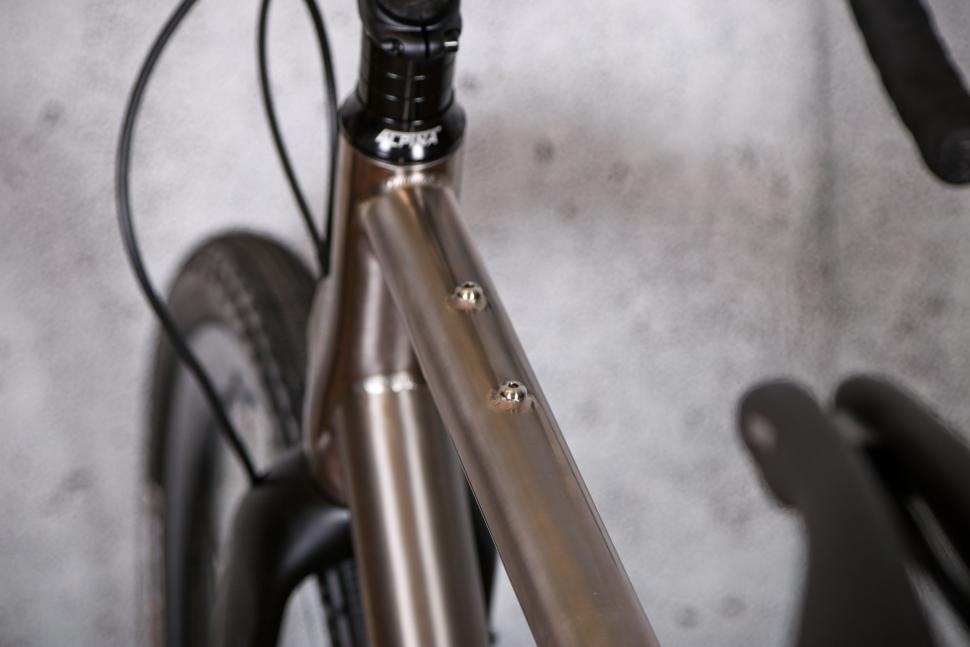
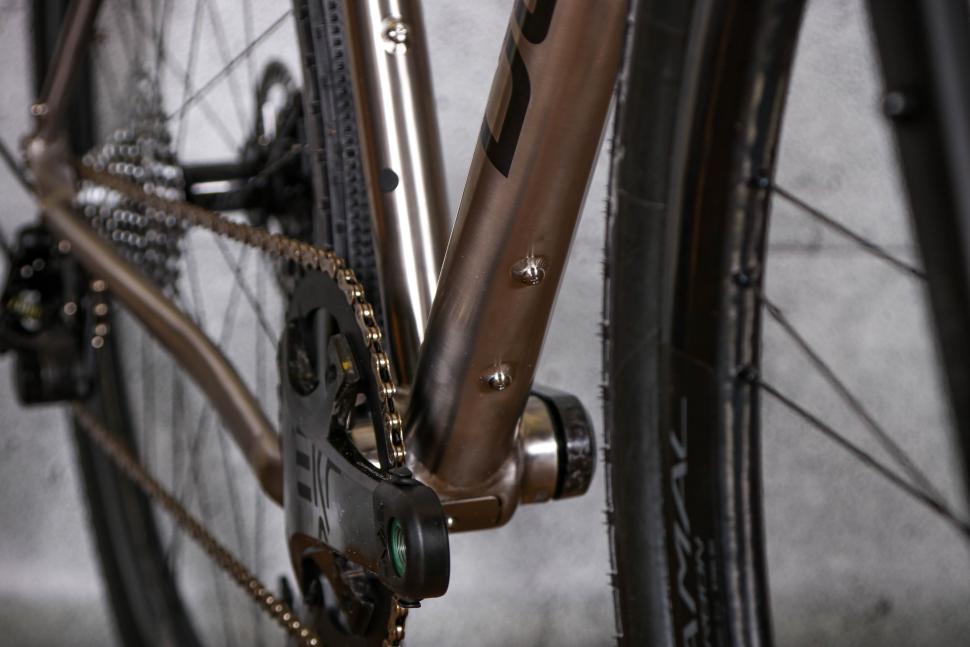
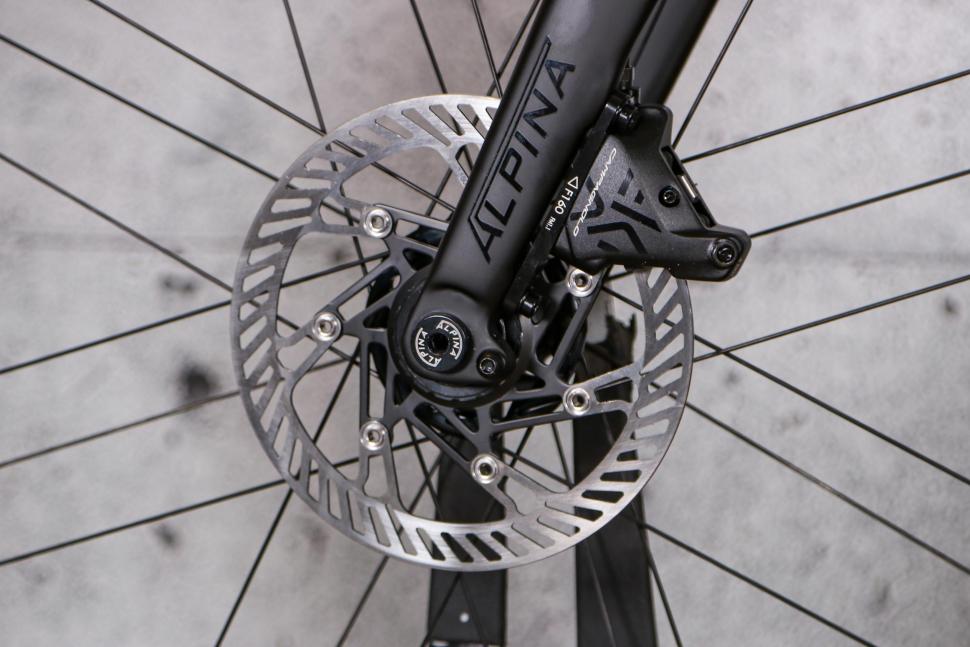
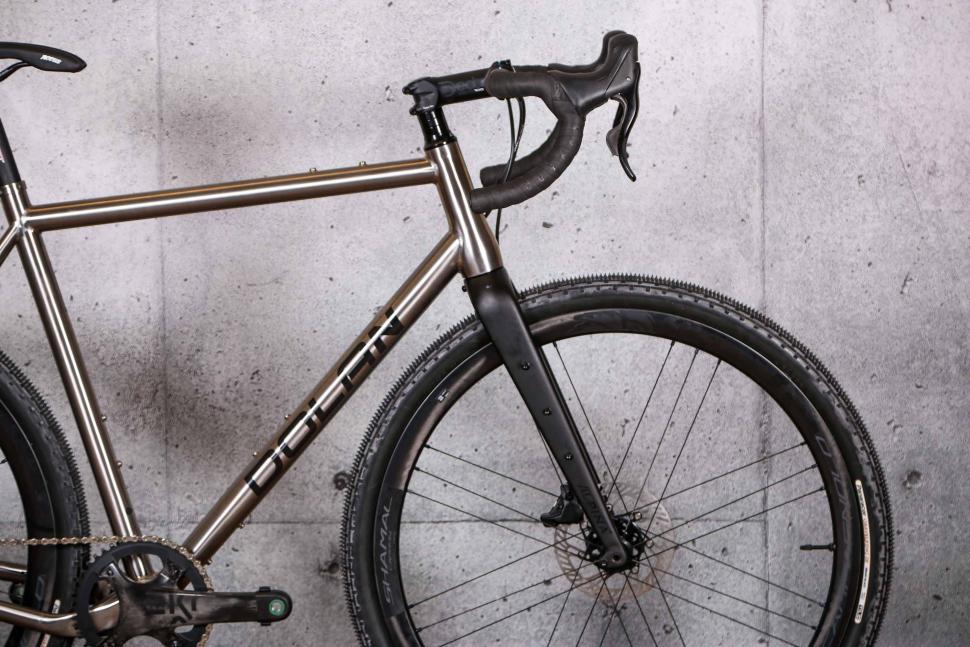
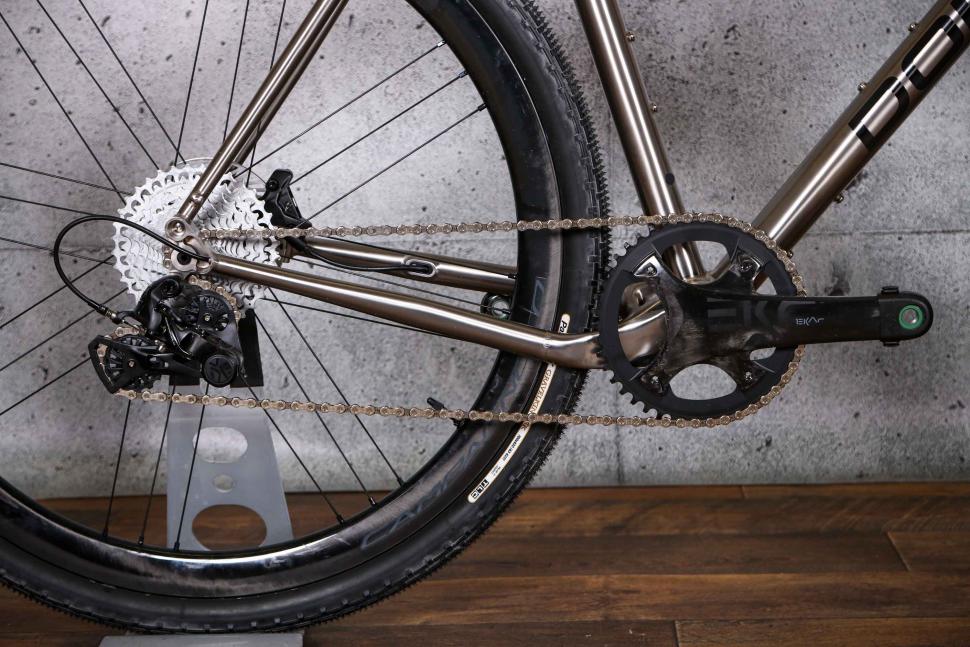
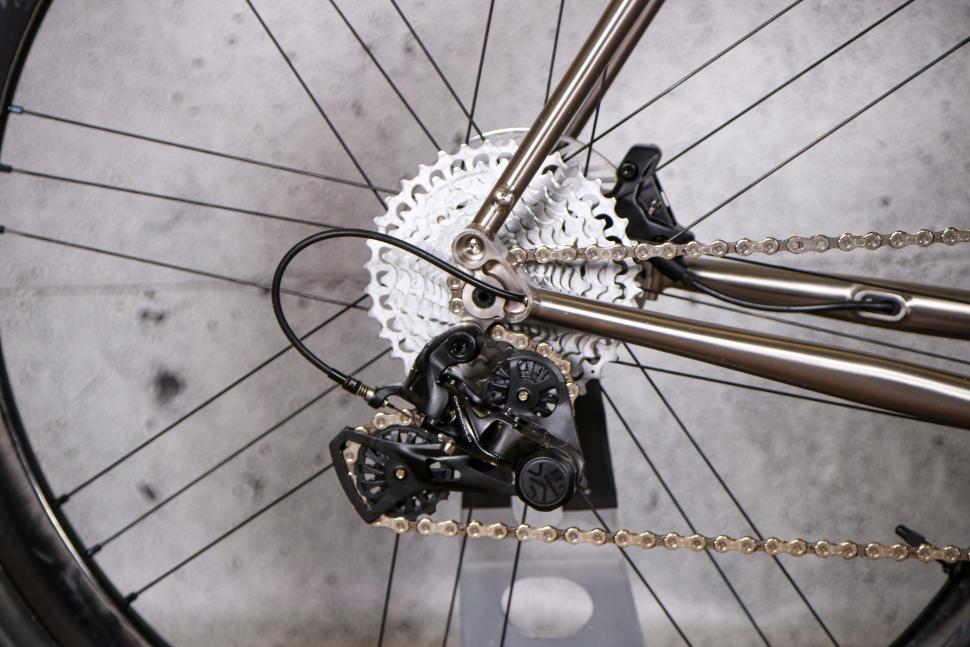
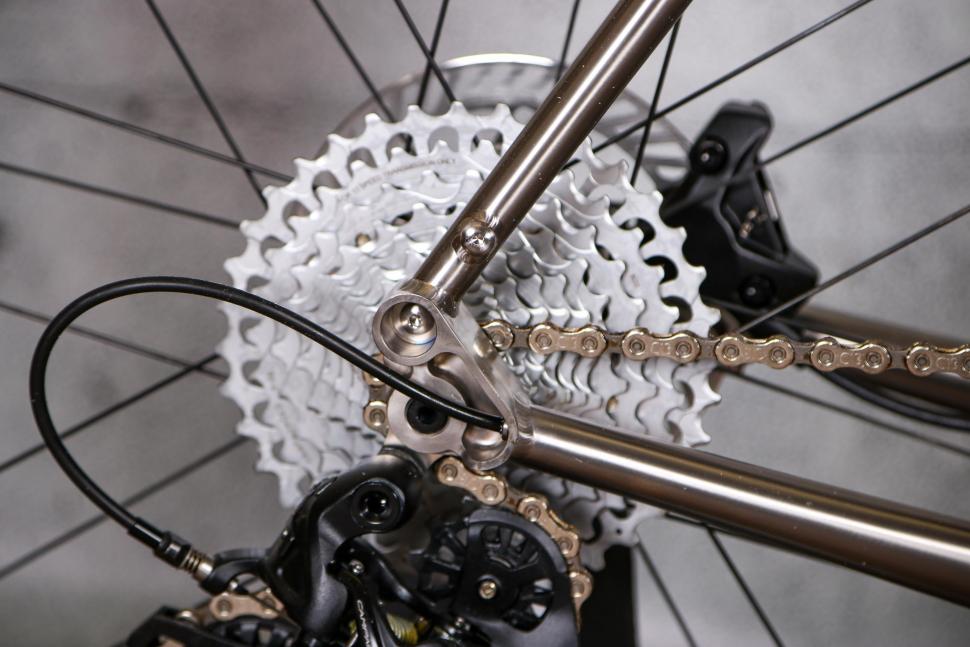



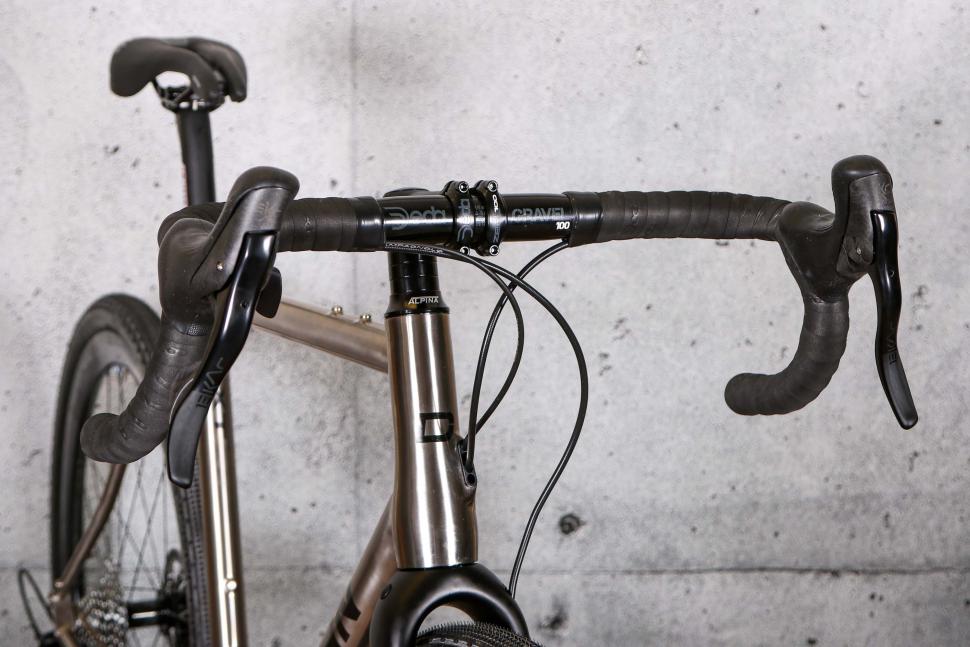
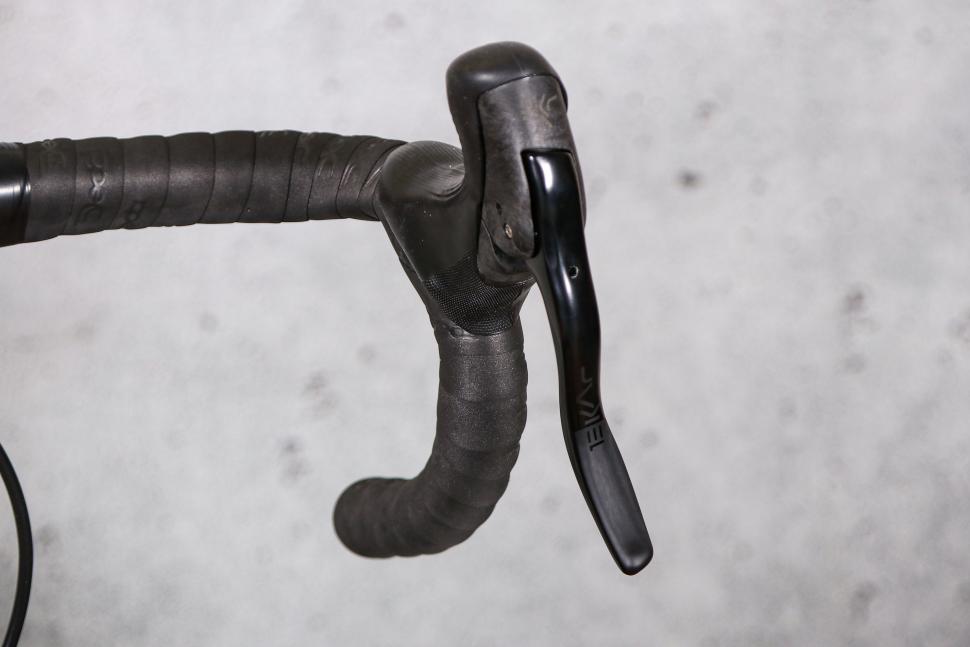

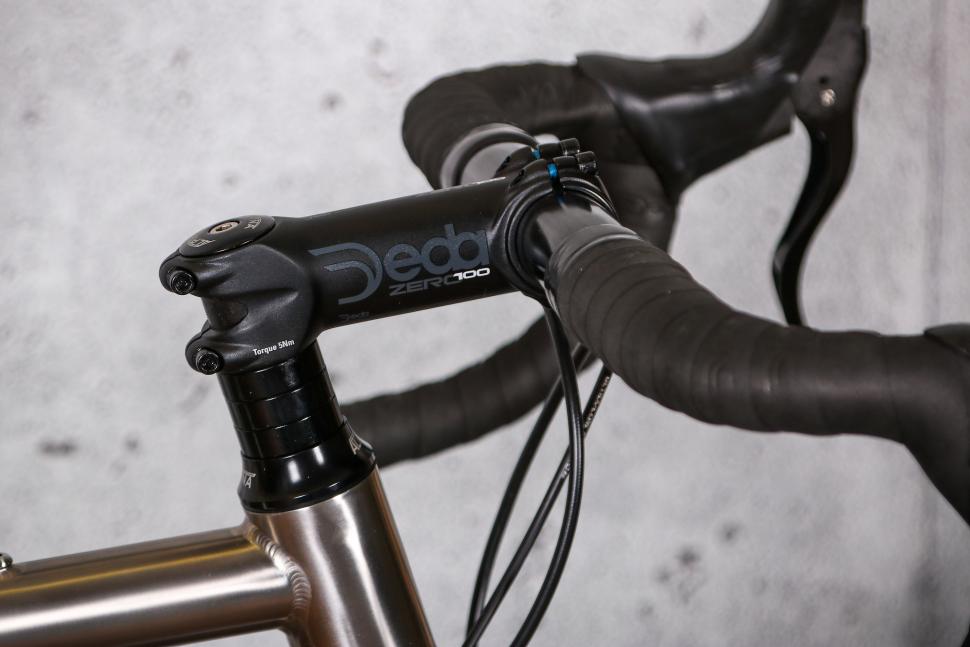

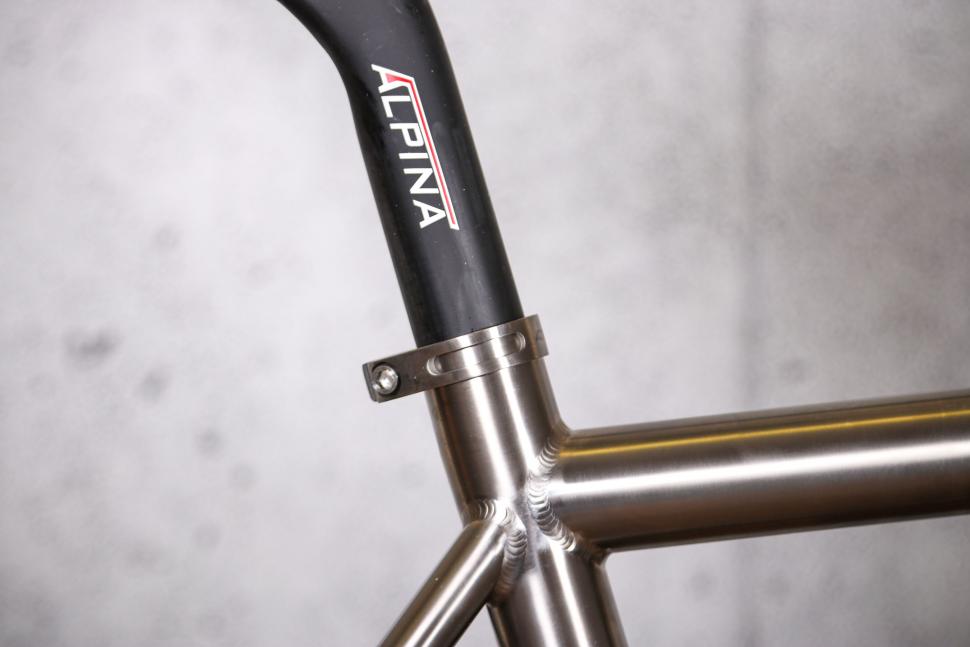
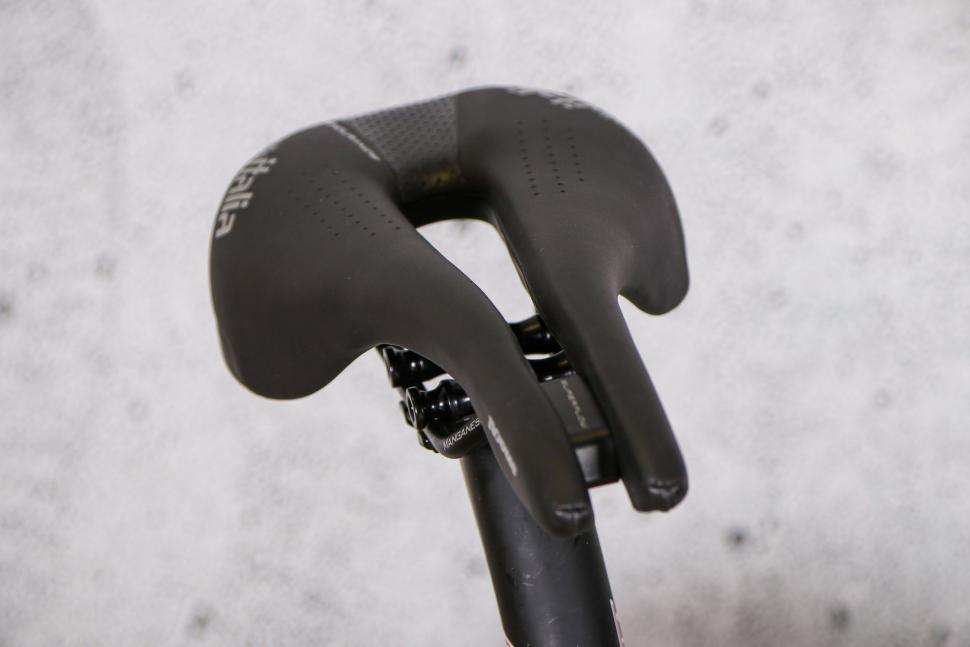
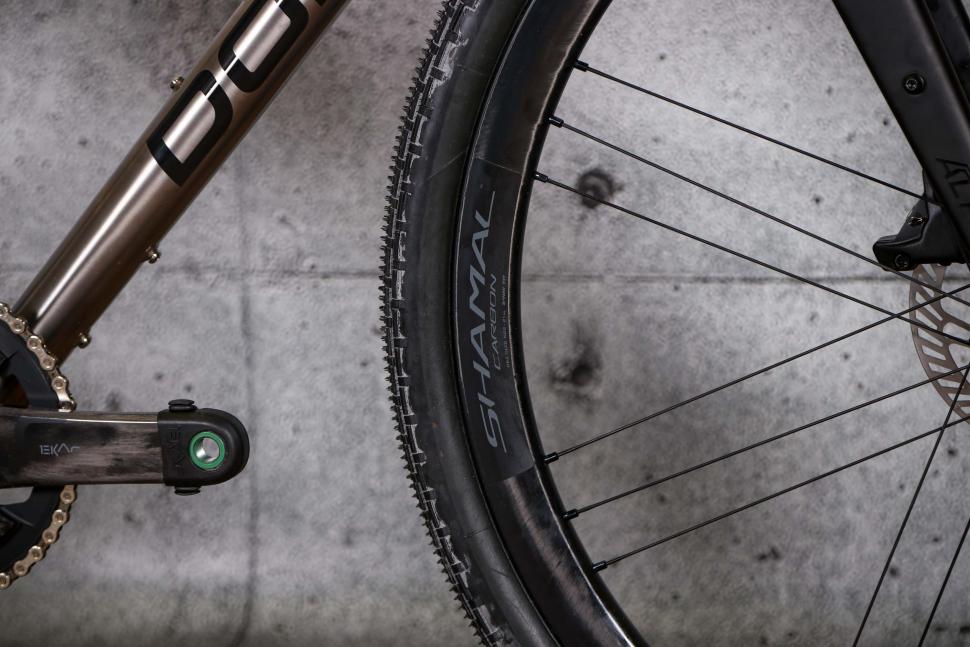
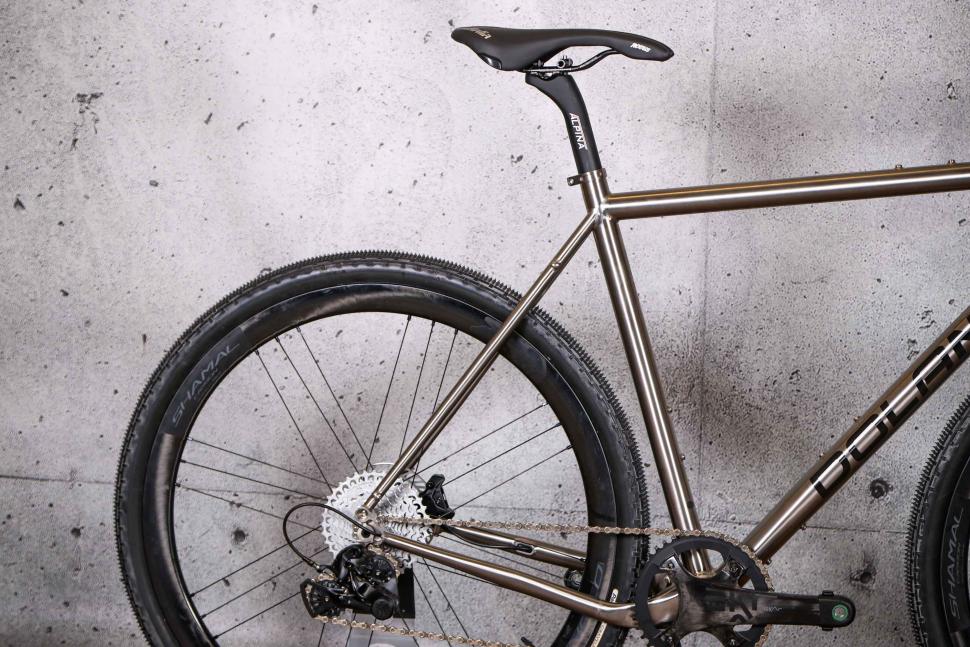
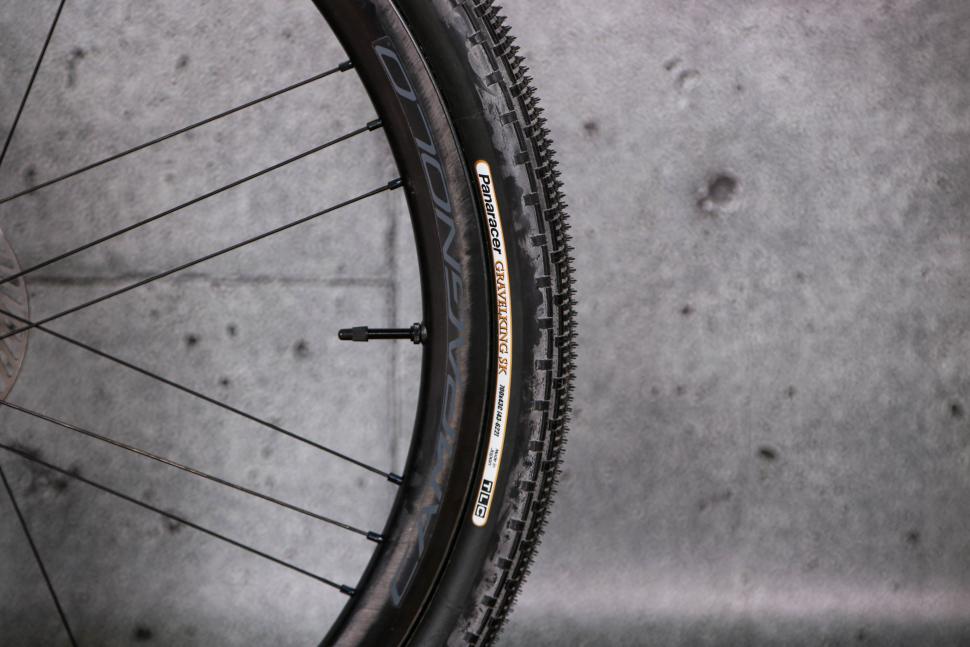


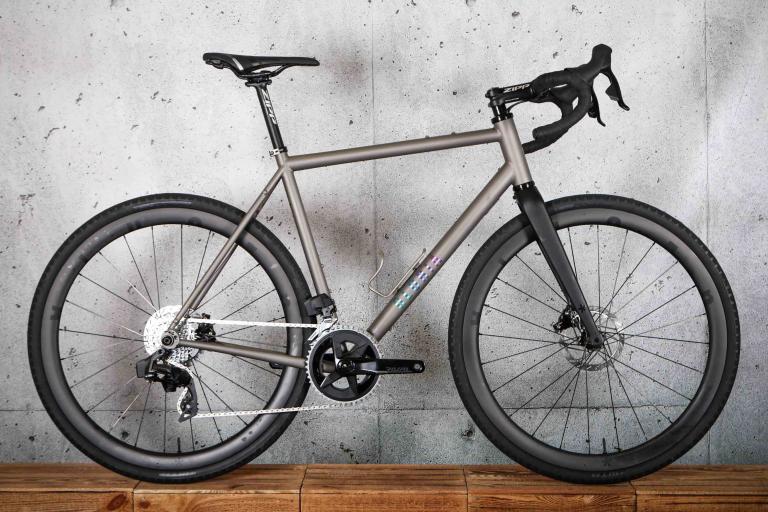
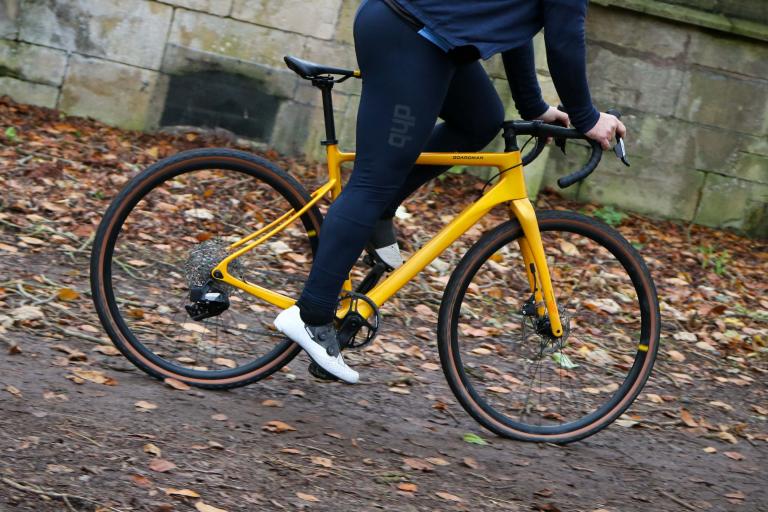
Add new comment
12 comments
The tubes have no butting, so the frame is presumably heavier than the competition that use butted tubing (Enigma, Reilly, Ribble). More durable though I guess.
A friend bought the alloy version and it was great, great service from Dolan too.
I have the aluminium GXA from Dolan and I'm a fan, so nice to see a review of a Dolan bike - I've found the GXA really good to ride as a beginner bike-packer and gravel rider, even when it's loaded up. My GXA came in at just over £1,600 with a reasonable amount of customisation, which is somewhat cheaper than the GXT! Dolan should also be commended for their customer service.
Dolan should also be commended for their customer service.
Five grand for bird-shit welds. If I was desperate for Ti, I'd have a Reilly, complete with threaded BB.
And a whole five year warranty...
Likely the same factory but yeah, threaded BB and a lifetime warranty. Love mine.
The Reilly response to PF BBs in their FAQs says it all:
"Can I fit a press fit B.B. ?
No, these are a terrible idea for a metal frame."
Voila....a press-fit BB, internal cables and a Chi-Ti frame.... for a bargain price of £5k...because let's face it you'd need the Shamals to take your eyes off the welded chainstays....
Think I'll take my Litespeed out for a spin this afternoon....18yrs old and still going strong.
There's nothing better than the 1999 Appalachian, very second hand and still going strong!
I am sufficiently dated that the BB, internal cables and funny chainstays would rule it out for me
Press fit bottom bracket? It doesn't seem to make any sense on a titanium frame.
I've had four bikes with press-fit bottom brackets, BB86 x 3 and one BB30. Not a squeak from any of them.
This frame looks a lot like this one https://jguillem.com/bike/atalaya-gravel not that there's anything wrong wit it.
It's similar but not the same - different dropouts, no bosses on the top tube, different seat clamp area not to mention different geometry.
Dolan makes some cracking bikes and they only seem to be getting better as a company, nice work chaps!